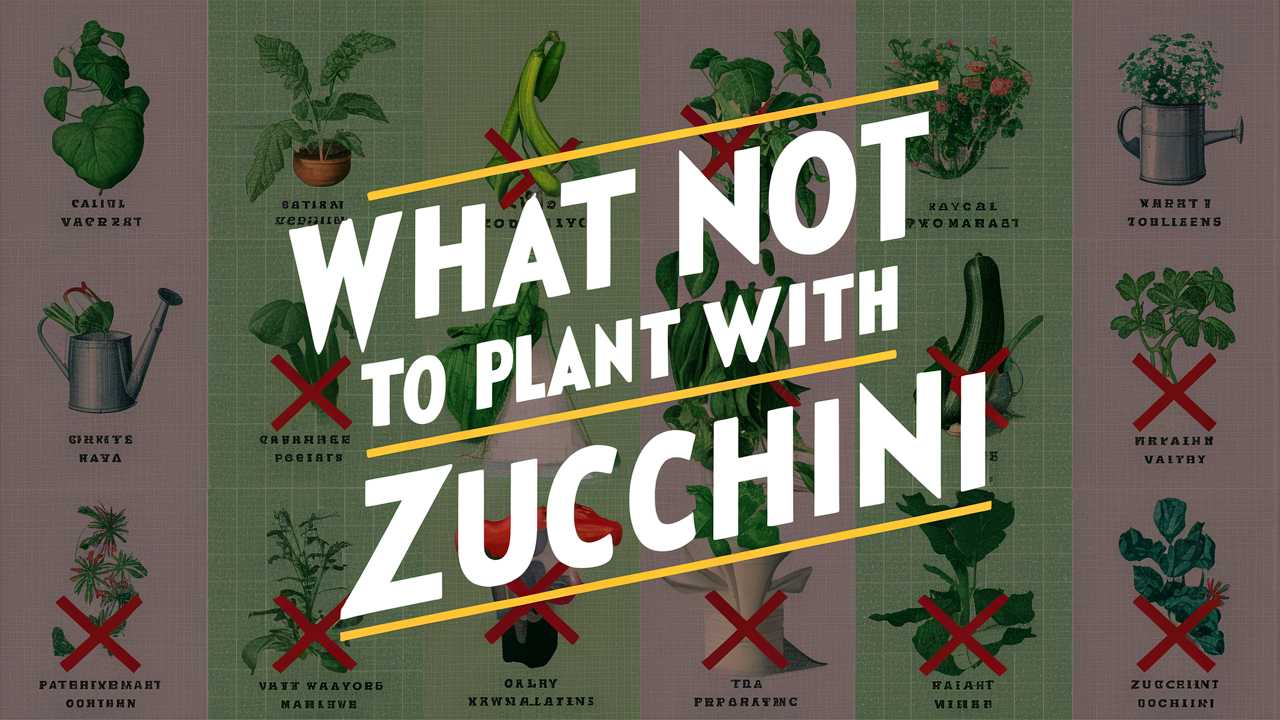In this guide, we’ll explore the plants that you should consider avoiding in proximity to zucchini, providing you with insights that will help you cultivate a healthier garden.
Potatoes
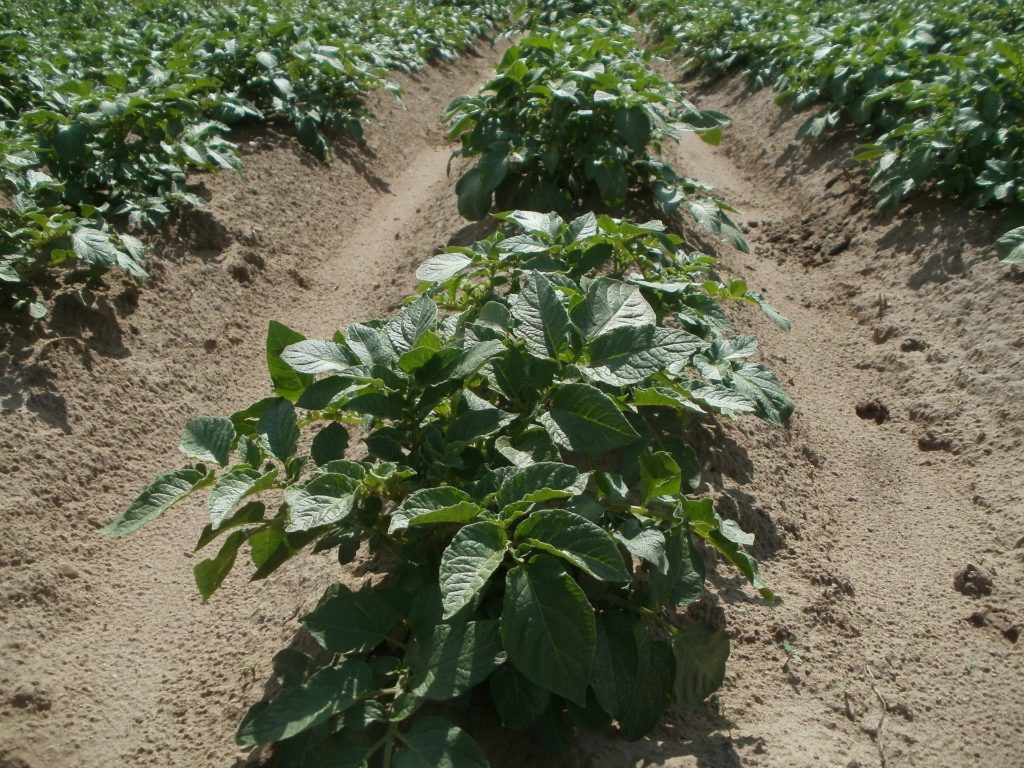
When it comes to companion planting, potatoes and zucchini don’t make the best pair. Both plants are heavy feeders, meaning they thrive on nutrient-rich soil. When grown together, they compete for the same resources, which can ultimately stunt growth and reduce yields. Potatoes are prone to the same pests as zucchini, such as aphids and whiteflies. The overlap in pest presence can exacerbate problems, leading to greater challenges in pest management. If you’re growing potatoes, keep them well away from your zucchini plants to ensure both can thrive independently.
Tomatoes
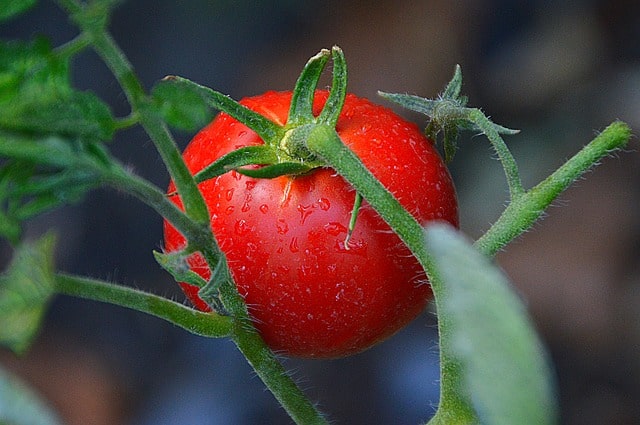
Tomatoes and zucchini, while both staples in a summer garden, should not be planted together. The two plants can harbor similar diseases, most notably fungal infections like blight. If one plant becomes infected, it can easily transfer diseases to the other, jeopardizing your entire crop. Moreover, tomatoes require a different watering regime, often needing drier soil conditions compared to zucchini’s preference for moist environments. The contrasting water needs can result in overly soggy or dry soil, making it difficult for both plants to flourish. Instead, consider giving each plant its dedicated space, allowing them to thrive without the threat of shared issues.
Beans
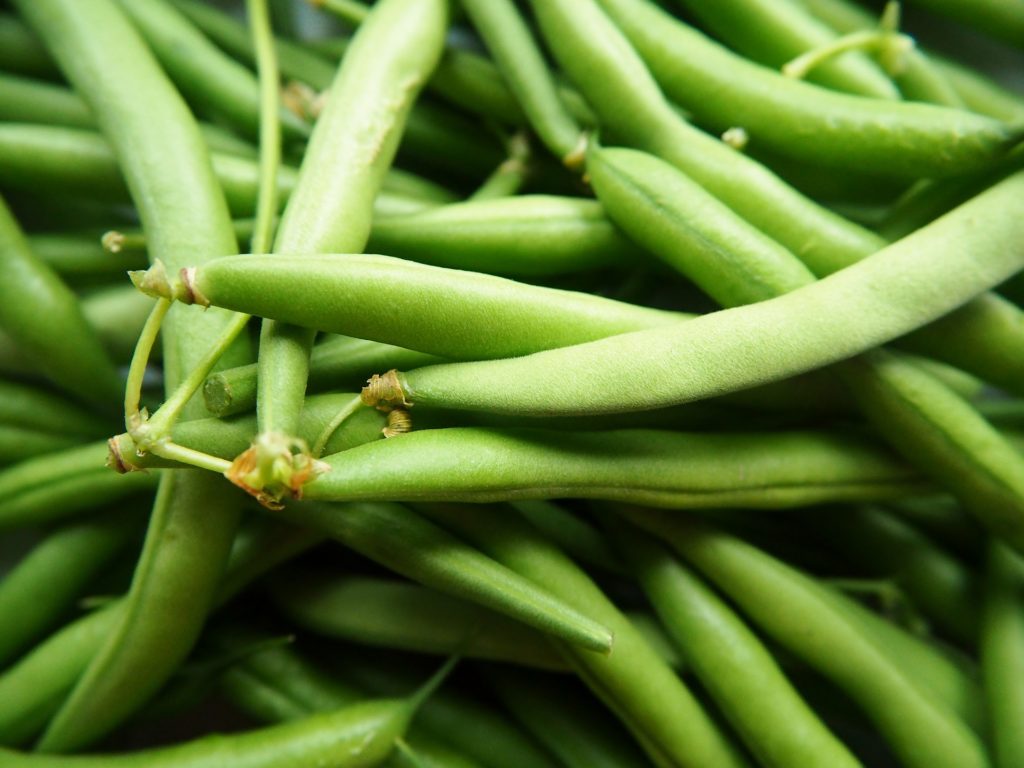
Beans, particularly pole beans, should also be kept away from zucchini plants. While beans do enrich the soil with nitrogen, offering a potential benefit to nearby plants, the two have conflicting growth patterns. Zucchini is a sprawling plant that occupies significant ground space, while pole beans climb and require vertical support. This spatial competition can inhibit both plants’ growth. Additionally, bean plants can attract pests that are detrimental to zucchini, including certain types of beetles. For the best results, it’s advisable to plan a garden layout that separates beans from zucchini to avoid these complications.
Cucumbers
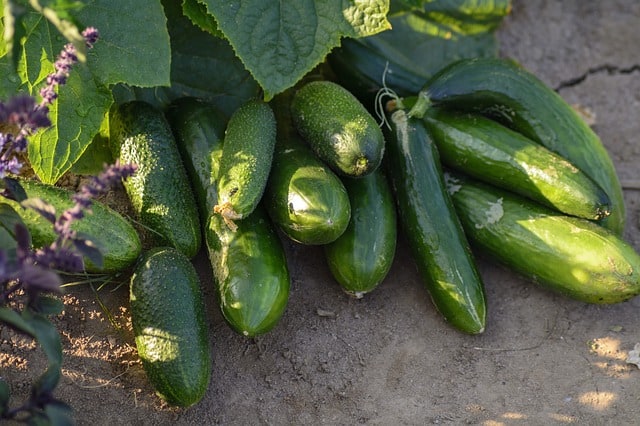
Zucchini and cucumbers are another pair that should not share garden beds. Both vegetables belong to the Cucurbitaceae family and are particularly susceptible to similar pests and diseases, such as cucumber beetles and powdery mildew. Planting them together can create an environment ripe for disease spread. Moreover, their similar growth characteristics mean they will compete for the same resources, leading to potential spindly growth or reduced yields. If you have limited space, consider rotating where each plant is grown from season to season to minimize risk rather than planting them together.
Melons
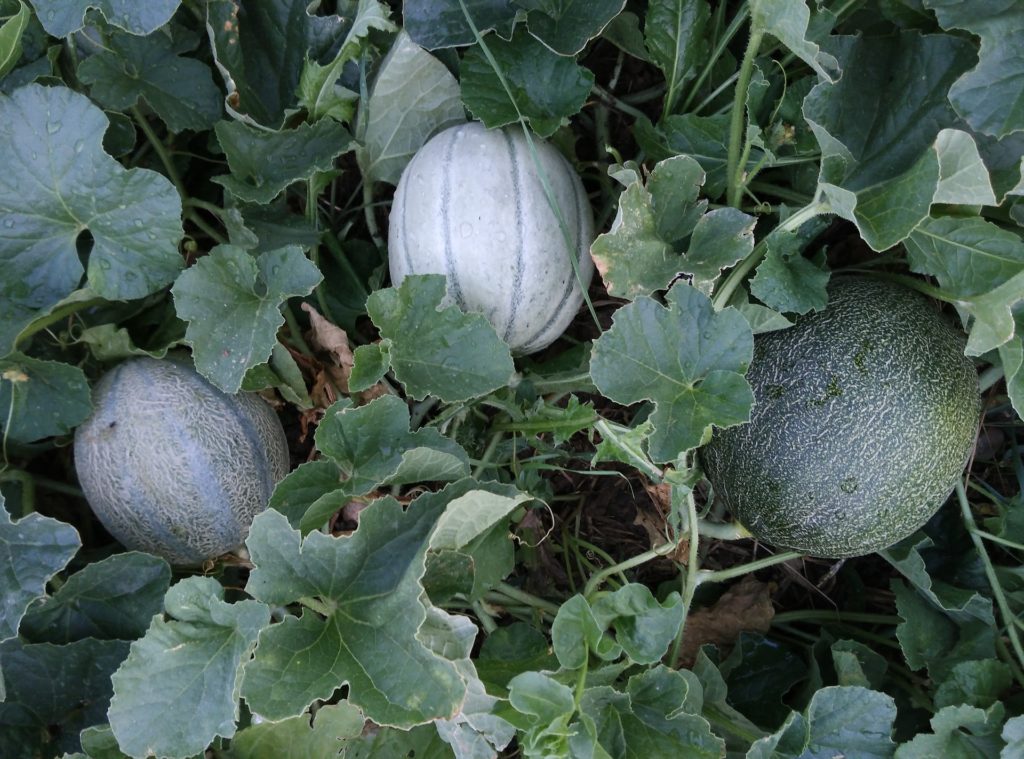
Like cucumbers, melons and zucchini share a family lineage but should maintain a healthy distance in the garden. Melons typically require more space and can overshadow zucchini as they grow large vines that sprawl across the ground. This can inhibit the smaller zucchini plants from receiving adequate sunlight, stunting their growth. Furthermore, competition for nutrients and water can lead to poor plant health across the board. Melons can also attract similar pests and diseases as zucchini, creating a perfect storm of problems. It’s best to plant melons in an area where zucchini will not be competing for resources, earning you healthier yields of both crops.
Cabbage
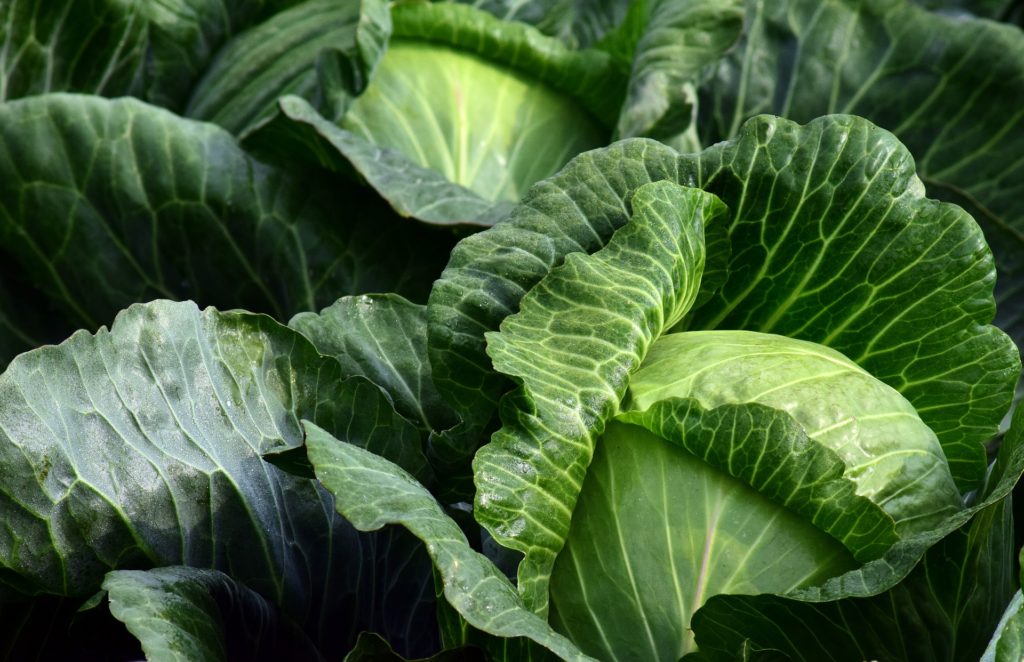
Cabbage may be a garden staple, but it doesn’t sit well beside zucchini. Members of the Brassica family, like cabbage, broccoli, and cauliflower, tend to attract specific pests, such as cabbage moths and aphids, that can also bring harm to zucchini plants. The proximity can make pest management more challenging and may lead to infestations that threaten both crops. Additionally, cabbages thrive in cooler temperatures, often leading to a conflict of needs since zucchini flourishes in warmer conditions. For a thriving garden, it’s best to keep zucchini well separated from cabbage plants.
Broccoli
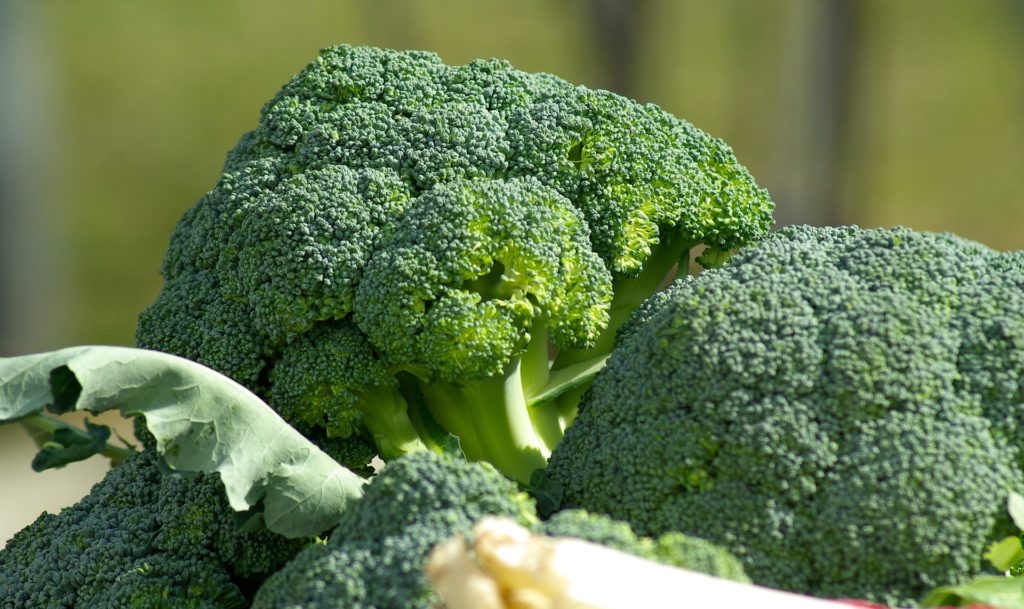
Broccoli shares many of the same concerns as cabbage when planted alongside zucchini. The two have different temperature preferences, with broccoli preferring cooler conditions that keep it from bolting. Meanwhile, zucchini thrives in warm, sunny environments. This difference can lead to competition for space and resources that can adversely affect growth. The potential for pest overlap remains high, with both plants attracting aphids and other nuisances. To ensure that both crops can grow to their full potential, assign them distinct zones in your growing space.
Cauliflower
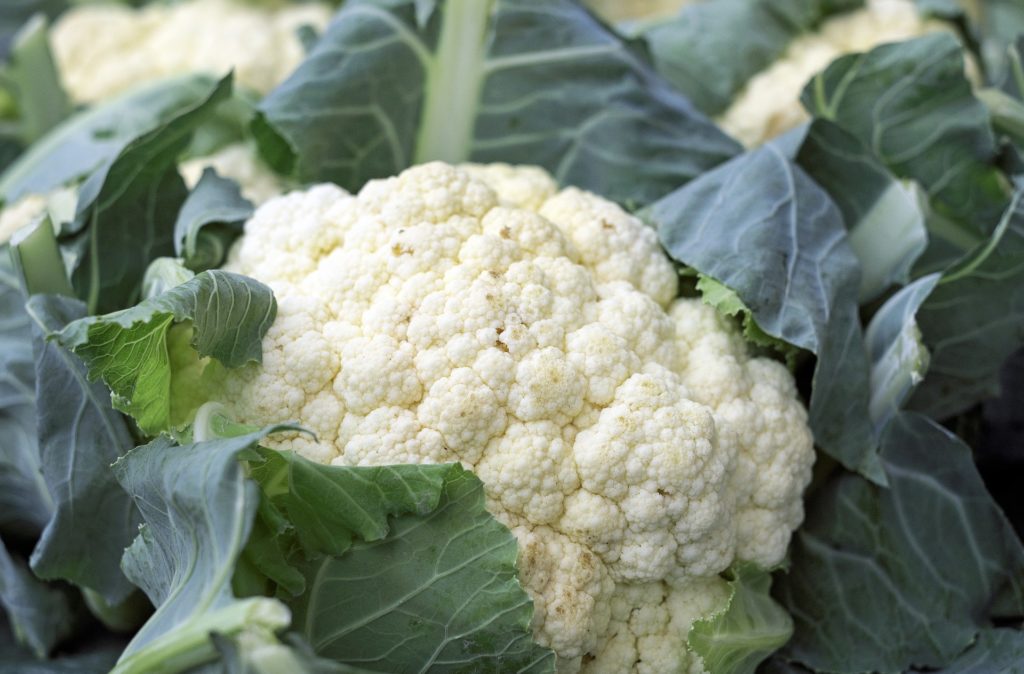
If you are considering planting cauliflower in the same garden bed as zucchini, you might want to think twice. Cauliflower, like other brassicas, can attract pests that pose a risk to zucchini. Moreover, their differing needs regarding temperature and soil nutrients can lead to suboptimal conditions for both. Besides being susceptible to similar diseases, the competition for resources can lead to smaller heads of cauliflower and less productive zucchini plants. For the health of both crops, it is advisable to maintain distance between zucchini and cauliflower.
Fennel
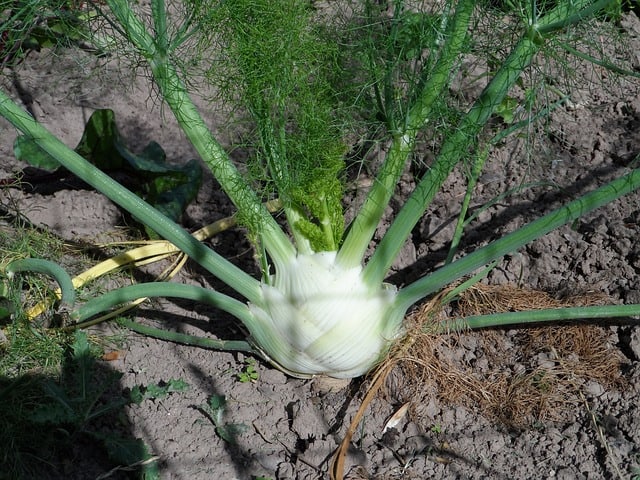
Fennel is an interesting plant, known not just for its culinary uses but also for its unique ability to prevent other plants from thriving when planted nearby. This phenomenon, known as allelopathy, means that fennel can release substances that inhibit the growth of neighboring plants, including zucchini. Fennel’s deep and extensive root system can also compete for moisture and nutrients in the soil. The combination of these factors makes fennel a poor neighbor for zucchini in the garden. For the best gardening experience and to avoid frustrations, consider giving fennel a separate patch, ensuring your zucchini can grow unfettered.
Conclusion
Companion planting is an essential aspect of successful gardening that can boost productivity and improve plant health. Knowing which plants to avoid growing alongside zucchini is just as important as knowing which ones to include for companionship. By keeping zucchini away from potatoes, tomatoes, beans, cucumbers, melons, cabbage, broccoli, cauliflower, and fennel, you can create optimal conditions for growth, reduce pest pressures, and enjoy a more fruitful harvest.


